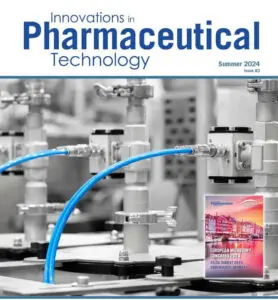
As featured on forbes.com
Mantra or reality: What do Britain’s scaleups want from the “Science Superpower” Agenda?
Forbes journalist Trevor Clawson spoke to Automata CEO Mostafa ElSayed to get his take on the measures required to support their industries. We have reproduced this article for our visitors, but you can read the original story and more great life science content here.
There’s nothing a politician likes better than a mantra – a phrase that can be repeated again and again until, possibly, thought becomes reality.
And one of the latest mantras to trip off the tongues of U.K. government ministers is “science superpower.” It’s been around for a while. In 2021, former Prime Minister, Boris Johnson said his government’s aim was to restore Britain’s place as a scientific superpower. More recently – at the end of 2023, to be precise – Finance Minister, Jeremy Hunt told members of parliament that his goal was to ensure the U.K. could rival Silicon Valley. This year, the Prime Minister reorganized the machinery of government and set up a Ministry for Science, Innovation and Technology. Naturally enough, startups and scaleups are expected to play a vital role in a flowering of commercially exploitable science.
So how skeptical should we be? It’s tempting to think of the science superpower agenda as a kind of figleaf for a government at a time when the wider economy isn’t looking particularly healthy.
That would be overly cynical. For one thing, the U.K. tech sector is performing pretty well. It continues to attract high levels of foreign and domestic VC cash. In the first half of 2022, £14.7.7 billion of VC capital flowed into Britain. And although investment dropped sharply to £8 billion between July and December, the U.K. tech sector is still a magnet for capital. Perhaps more importantly, it’s important economically for the U.K. to ensure that it is not left behind in the commercial development of key technologies. So no one should argue with the ambition.
But as Science Minister George Freeman has acknowledged, Britain is not yet a science superpower but rather – in his words – a “science powerhouse.” Achieving the former status would involve becoming an “innovation nation.” Essentially what he meant was creating an environment in which scientific research could be successfully industrialized.
How can that be achieved? I spoke to two scaleup CEOs at the heart of the science and technology sector to get their take on the measures required to support their industries.
Scott White is CEO of Pragmatic Semiconductor. Founded twelve years ago, it has developed a microchip technology that doesn’t require silicon. Today, it produces low-cost and flexible chips that can be used in multiple contexts. Its business model revolves around manufacturing – with a facility in the North East of England – but also plans to offer compact manufacturing equipment to customers. In addition, it designs its own RFID chips for tracking goods in transit.
Pragmatic has just commissioned a poll of 250 technology business leaders. When asked whether the government could meet its objective of being a science superpower by 2030, a healthy 68 per cent yes but only 40 per cent thought enough government support was on offer.
Unbalanced investment
As White sees it, the UK’s cash-rich ecosystem remains unbalanced, with much of the funding going to early-stage businesses, rather than scaleups. Most of the capital that is invested at later stages comes from overseas. “We did a Series C in 2021, 2022- that was for $125 million. Eighty per cent of the investment came from outside of the UK,” he says.
So in that respect, there is a need for capital that will allow tech businesses to remain in the UK in terms of both location and control as they grow.
But what can the government actually do? Well, one way forward is to make it easier for institutions to invest. White welcomes changes to insurance industry regulation that will allow pension funds in particular to allocate money to tech.
He also acknowledges the progress made in providing public funding through the British Business Bank and its venture arm, British Patient Capital. In addition to investing alongside VCs, the organization has created Future Fund: Breakthrough, with £375 million earmarked for deep tech ventures. “That’s good but the scale needs to be much bigger,” says White.
Mostafa ElSayed agrees. He is CEO and co-founder of Automata, a company that provides automation technology for laboratories, mainly in the life sciences sector. The company’s products are designed to speed process such as diagnostics and clinical trials while cutting down on human error. He argues that some sectors are better served with others when capital is allocated by VCs, with deep tech having a particular problem.
And the UK may be falling behind its European competitors. “The biggest backer of deep tech is BPIFrance (a sovereign wealth fund), after that its Germany and then Scandinavia,” says ElSayed.
ElSayed says change could be coming. He cites comments from the new head of the British Business Bank who recently floated the idea of creating a sovereign growth fund to support innovation.
Relatively small changes could also deliver benefits. White points to existing programs, such as the Enterprise Investment Scheme(EIS) and Venture Capital Trusts. By offering tax breaks to those who back eligible companies, these vehicles have encouraged investors to back startups. However, once companies get to a certain size, the tax breaks fall away, meaning the schemes don’t benefit scaleups.
Boosting demand
It’s not all about the money. “There is also a need to support domestic demand,” says White. “For instance, you can use government procurement to drive adoption.”
Indeed, in some sectors, the government has a huge amount of power to make things happen. ElSayed, uses the example of clinical trials. The U.K. has a hugely important resource in the form of a National Health Service that serves more or less the whole population and can gather data accordingly. Potentially, this makes Britain one of the best countries in the world to carry out clinical trials. However, although a national service, much of the decision-making is at the level of local health trusts. “There needs to be a national strategy,” says ElSayed. There is a precedent in that Britain already has a national strategy for genomics research.
Another important piece of the jigsaw is visa policy. ElSayed stresses the need for a regime that allows science-based businesses to recruit quickly.
Scott White says Britain has the potential to become a science superpower, but clarity is required around what that actually means. In terms of government support, the pieces of the jigsaw are not all in place.

First featured in Innovations in Pharmaceutical Technology, in this article Russel Green explores how automation will change workflows, and how can the industry prepare

Partnering with The Francis Crick to establish full walkaway genomics workflows with the Automata LINQ platform.

How do you ensure that your investment in automation solutions will be future-proofed? We explore in this article